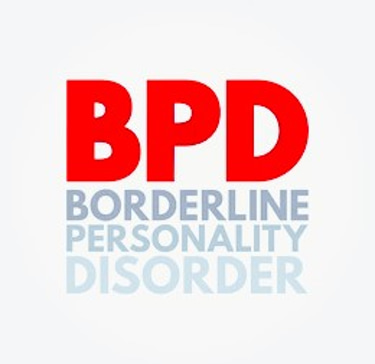Self-Compassion for BPD
G Pacana
7/5/20253 min read


“The key to self-compassion is not to deny suffering, but to recognize that it’s perfectly normal. There isn’t anything wrong with the imperfection of life as long as we don’t expect it to be other than it is.” ― Kristin Neff
Life for those who have borderline personality disorder is often like living through a storm of emotions. It’s intense, unpredictable, and sometimes horribly lonely. Navigating the storm requires something steady and solid, something that will calm the turmoil and provide an anchor—self-compassion.
What Is Self-Compassion?
Essentially, self-compassion is treating yourself with kindness, care, and compassion in the manner you would towards a good friend who is miserable. Dr. Kristin Neff, an expert researcher of this area, enumerates three main components of self-compassion:
- Self-kindness: being kind and gentle to yourself instead of being critical or harsh.
- Common humanity: recognizing that suffering and fallibility are a natural part of the shared human condition, not signs of personal failure.
- Mindfulness: observing painful sensations and thoughts without amplifying or shutting them down.
Self-compassion is not making excuses for yourself or avoiding responsibility. It’s about seeing pain while empathizing, not judging. It leaves space for learning, not for punishment.
Why Is Self-Compassion So Important for People with BPD?
Those with BPD generally present with intense emotional states, unstable interpersonal relationships, and persistent feelings of emptiness or shame. These patterns generally arise from early experiences of trauma or invalidation in which emotional needs were ignored or dismissed. Many people with BPD thus develop an internal critic that tells them they are “too much,” “not enough,” or simply “broken.”
This self-blame can intensify emotional distress and enhance the BPD symptoms of impulsivity, self-mutilation, pathological fear of abandonment, and constant doubt about self. Without a brake, self-criticism turns into a self-sustaining process that energizes and perpetuates emotional dysregulation and keeps recovery at bay.
That’s when self-compassion comes into play. Once a person with BPD develops a compassionate inner voice, the door to healing is open. They begin to learn that their emotions, as dramatic as they are, are genuine. They understand that their struggles do not render them unworthy but rather ordinary. Most importantly, they begin to build a safer, healthier relationship with themselves.
The Science Behind It
Studies have shown self-compassion to be strongly related to emotional resilience, reduced anxiety and depression, and improved social functioning—all areas more often affected by BPD. Given that therapies like DBT center around emotion regulation and interpersonal effectiveness, adding self-compassion can add depth to these benefits by reorienting one’s relationship with oneself.
Self-compassion can even reduce shame and increase motivation for change—two key elements in the long-term recovery process for people with BPD.
How Can One with BPD Learn Self-Compassion?
It is difficult to develop self-compassion, especially after all the years of self-blame or invalidation. It takes time, practice, and patience. But it can be done. Here are a few places to start:
Notice Your Inner Critic
Begin by noticing how you talk to yourself. Do you curse yourself when you make a mistake? Do you gross yourself out when you get upset? Gently bring your attention to these thoughts without judgment—simply observe. Awareness is the first step to change.
Practice Self-Talk Reframes
Once you become aware of critical self-talk, try reframing gently. For example:
Instead of: “I’m so dramatic. Nobody else does this.”
Try: “I’m feeling overwhelmed now. That’s fine. My feelings are okay, and I am doing my best.”
Although it might be hard at first, these changes start to change the way you are with yourself.
Use Guided Meditations
There are many free guided self-compassion meditations by Kristin Neff or Tara Brach, for example. These sets of practice build the “compassionate muscle” in your mind and provide comforting rituals to use during difficult periods.
Journal with Compassion in Mind
Write to yourself as you would write to a good friend. Acknowledge your pain, validate your feelings, and support yourself. This type of journaling can enhance emotional intelligence while creating a kind internal dialogue.
Work with a Compassion-Focused Therapist
CFT, DBT, and trauma-informed practitioners are trained therapists who can help individuals with BPD integrate compassion into their recovery. Therapy can also untangle the shame that gets in the way of being kind to oneself.
It is hard to live with BPD—not because individuals with BPD are flawed, but because their feelings run deep and their sensitivity runs extreme. Self-compassion is not a luxury, it’s an anchor. It can transform self-hatred into self-acceptance, isolation into community, and hopelessness into hope.
To anyone reading this who is fighting BPD: you are not alone, and you can recover. Your suffering is valid, but so is your capacity. Start small and be gentle with yourself.
Copyright 2025 Psycnet, All Rights Reserved
